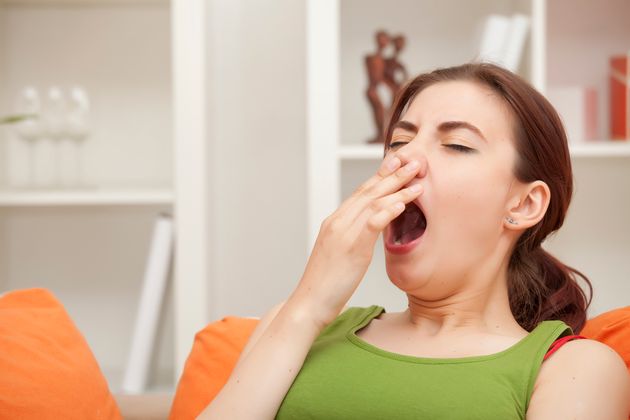Quando alguém boceja repetidamente, muitas vezes é interpretado como sendo sonolento ou entediado. Bocejar é a maneira do corpo responder a níveis reduzidos de oxigênio, que está diretamente relacionado com os níveis de energia. Bocejar, o corpo recebe quantidades aumentadas de oxigênio do que a respiração normal e ajuda a pessoa a se sentir energizada e acordada. Isso geralmente acontece quando se está cansado ou sonolento ou às vezes entediado e às vezes não se interessa pelo que está acontecendo ao seu redor (discussão ou atividade). É também um fato bem conhecido que bocejar é contagioso, e quando uma pessoa em um grupo boceja, outras pessoas também o fazem, muitas vezes sem querer. Acredita-se também que bocejar esfria a temperatura do cérebro.

Diz-se que uma pessoa está bocejando excessivamente se estiver bocejando mais de uma vez por minuto. Embora muitas vezes benigno e não uma condição grave, pode ser uma indicação da condição médica subjacente e, portanto, requer atenção se continuar a ser um problema regular. O que também é importante é procurar sintomas associados que possam indicar um problema subjacente. Por exemplo, pessoas com insônia podem estar bocejando em excesso e também têm distúrbios do sono, níveis de energia reduzidos, falta de concentração e atenção, etc.
Algumas das condições médicas que podem apresentar bocejo excessivo são discutidas abaixo.
- Sleep disturbances: With work hours stretching beyond the norm and screen-time increasing, most people’s sleep patterns have changed and there is no fixed sleep-wake cycle. This often causes daytime sleepiness, tiredness, difficulty focusing, and lack of attention. While this can be a temporary issue, it can become a chronic issue too. The person should be made to keep a sleep diary and correct the sleep timings.
- Depression and anxiety: Whether a person is anxious or depressed about something, the heart rate, breathing, and stress levels are altered. This keeps the person awake at night and also makes him/her yawn excessively during the day. Both anxiety and depression also do not let a person sleep normally, thereby further increasing the yawning. The medications used for treating these conditions also induce yawning.
- Heart problems: The vagus nerve runs from the base of the brain to the torso and further down, and if stimulated, this can cause excessive yawning. This condition is known as vasovagal reaction, where the nerve is hyperactive causing a drop in the heart rate and breathing. This, in turn, increases yawning in an effort to pump in more oxygen and increase these two parameters. Heart attacks also present with excessive yawning.
- Cool temperatures: When in a cold place, a person yawns in an effort to take in more oxygen and keep themselves warm.
- Seizures: Mild forms of seizure can present as sleepiness, as indicated by excessive yawning. Sometimes, the seizure may get self-arrested, and sometimes it may blow into a full-blown seizure.
Bocejo excessivo, embora inofensivo, às vezes pode ser indicativo de uma condição subjacente mais grave. Então, se uma pessoa está bocejando excessivamente por um longo tempo, ela não deve ser ignorada.


